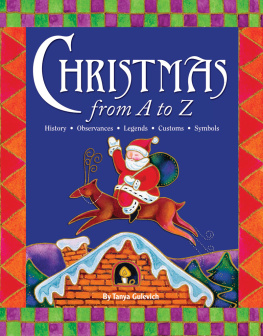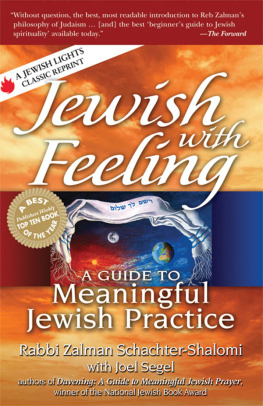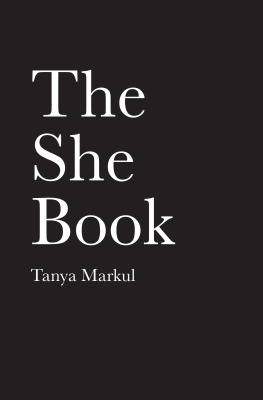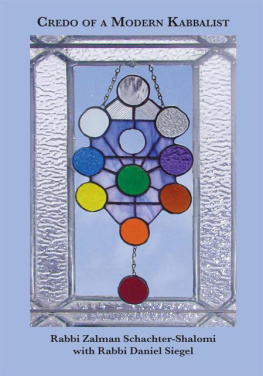Tanya
Author: Rabbi Schneur Zalman of Liadi
Translators: Nissan Mindel, Nissan Mangel,
Zalman Posner, Jacob Immanuel Schochet
Publisher: Kehot Publication Society
SEFER LIKUTEI AMARIM
PART ONE
ENTITLED SEFER SHEL BENONIM
Compiled from (sacred) books and from sages, exalted saints, whose souls are in Eden; based on the verse "For it is exceedingly near to you, in your mouth and in your heart, to do;" to explain clearly how it is exceedingly near, in a lengthy and short way, with the aid of the Holy One, may He be blessed.
Approbations
by the famous rabbi and chasid, G-dly man, of saintly renown, our teacher Rabbi Meshulam Zusil of Anipoli:
I have seen the writings of this rabbi and gaon, G-dly man, saintly and pure, lucid speculum; and well he did; G-d in His wonderful kindness having put into his pure heart to accomplish all this in order to show the G-dly people His holy ways.
It was [the author's] intention not to publish these writings in print, since it is not his custom. However, because these kuntresim have spread in the midst of all Israel in numerous copies by sundry copyists, and, as a result of the many transcriptions, the copyists' errors have multiplied exceedingly, he was impelled to bring these kuntresim to the printing press.
And G-d has aroused the spirit of the [two] partners, the outstanding and distinguished scholar R. Sholom Shachne, the son of R. Noah, and the outstanding and distinguished scholar R. Mordechai, the son of R. Shmuel haLevi, to bring these kuntresim to the printing house in Slavita. So I said of this good deed, More power to you. However, they were apprehensive of the growing number of printing establishments which are wont to cause damage and ruin to the accredited ones. In view of this, we have resolved to give this approbation so that no man should dare lift his hand and foot to cause any damage, Heaven forfend, to the said printers by encroaching upon their exclusive right in any manner. It is to restrain any person from reprinting this book without the knowledge of the said printers for a period of five full years from the date below. He who will heed these my words will be blessed with good. These are the words of one who demands this for the glory of the Torah, this day, the third, twice blessed with "it is good," of the weekly portion Tavo, in the year (556). The insignificant MESHULAM ZUSIL of Anipoli
by the famous rabbi and chasid, G-dly man, of saintly renown, our teacher Rabbi YehudaLeib haCohen:
The wisdom of the man illumines the face of the earth on seeing the work of the saintly hands of the author, rabbi and gaon, G-dly man, saintly and pure, pious and humble, whose hidden [powers] had been revealed long ago, when he dwelt in the council of the wise with our lord, master and teacher, the world gaon, and drew water from the well of living waters. Now, Israel shall rejoice as his saintly words are revealed in this compiled work which is about to go to press, to teach the people of G-d the ways of holiness, as anyone can see in the inwardness of [the author's] words.
That which is common knowledge requires no proof. Only because of the apprehension of a wrong, lest a loss be caused to the printers, I come to confer sanction and prohibition, that no man lift up his hand or foot to reprint this work for a period of five years from below date. Whoever will heed these my words will be blessed with good.
These are the words of one who speaks for the glory of the Torah, this third day of the weekly portion Tavo,
YEHUDA LEIB HACOHEN
by the rabbis (long may they live), the sons of the gaon the author (of blessed memory, whose soul is in Eden).
Whereas it has been agreed by us to give authorisation and prerogative to bring to the printing press, for a remembrance unto the children of Israel, the written words of uprightness and truth, the words of the Living G-d, authored by our lord father, teacher and master, of blessed memory, recorded personally in his saintly expression, whose words are all burning coals to set the hearts aflame to bring them closer to their Father in heaven; they are entitled Igeret hakodesh ("Holy Epistle"), being mostly epistles sent by his holy eminence, to teach the people of G-d the way by which to walk and the deed which they should do;
And inasmuch as he has made references, in many places, to the Sefer Likutei Amarim, since the words of the Torah are scanty in one place and ample in another, especially also as he introduced new material in the Kuntres Acharon on certain chapters which he wrote when he composed the Sefer Likutei Amarim, profound discussions on passages in the Zohar, Etz Chayim and Peri Etz Chayim, which [passages] appear contradictory to one another, but he, with his inspired perception, has reconciled them, each statement in its own manner, as he has written in the Likutei Amarim, we have seen fit and proper to join them with the Sefer Likutei Amarim and Igeret hateshuvah of his saintly eminence, our lord father, teacher and master, of blessed memory;
[Therefore], we come to place a great fence and the rabbinic injunction of " (excommunication) for which there is no remedy, that no man lift his hand to reprint them in their present form, or in part, a period of five years from the date below.
However, this should be made known: To our misfortune the manuscripts written by his personal saintly hand which were composed with great punctiliousness, without a superfluous or deficient letter, have become extinct; only this little has remained from the abundance, and it has been carefully collected one by one from the copies spread among the disciples. Should, therefore, an error be discovered (who can understand [and prevent] errors?) the evident error will be identified as a scribe's error, but the meaning will be clear.
Declared by DOV BER, the son of my lord father, teacher and master, gaon and chasid, saint of Israel, our teacher and master SCHNEUR ZALMAN, of blessed memory, "
Also declared by CHAYIM ABRAHAM, the son of my lord father, teacher and master, gaon and chasid our teacher and master SCHNEUR ZALMAN, the memory of the tzaddik be blessed, " .
Also declared by MOSHE, the son of my lord father, teacher and master, gaon and chasid, SCHNEUR ZALMAN, of blessed memory, " .
Compilers Foreword
Being an Epistle sent to the Communities of our Faithful. May the Almighty guard them.
To you, O men, do I call. Listen to me, you who pursue righteousness, who seek the Lord; and may G-d hearken to you, both great and small, all the faithful in our land and those adjacent to it. May each in his place achieve peace and eternal life, for ever and ever. Amen. May this be His will.
Behold, it is known as a saying current among people all our faithful that listening to words of moral advice is not the same as seeing and reading them in books. For the reader reads after his own manner and mind, and according to his mental grasp and comprehension at that particular time. Hence, if his intelligence and mind are confused and wander about in darkness in G-d's service, he finds difficulty in seeing the beneficial light that is concealed in books, even though the light is pleasant to the eyes and [brings] a healing to the soul.
Apart from this, the books on piety which stem from human intelligence, certainly have not the same appeal for all people, for not all intellects and minds are alike, and the intellect of one man is not affected and excited by what affects [and excites] the intellect of another. Compare with what our Rabbis, of blessed memory, have said with reference to the blessing of the "Wise One in Secrets" ( ) upon beholding 600,000 Jews, because their minds are dissimilar from one another, and so on. As also Rabbi Moses benNachman, of blessed memory, [explains the reason for this blessing] in














